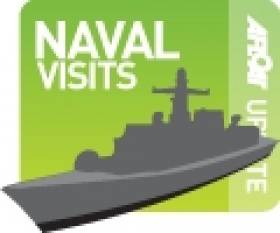Displaying items by tag: HMCS St John's
A 'Maple' Visitor to Cork
#NavalVisit- While Dublin Port has a flotilla of visiting European naval visitors, the Port of Cork also has a call from a Canadian Navy frigate this weekend, writes Jehan Ashmore.
HMCS St John's (FFH 340) which arrived yesterday to Cork Harbour, is the eleventh of twelve 'Halifax' class frigates and one of the most combat capable warships in the world.
The frigate was commissioned in 1996 in St. John's, Newfoundland and is armed with systems to deal with surface and air threats as well. This combination makes the class the work-horses of the Canadian Navy task group concept.
Listed below are some principle specifications of the Halifax class frigates.
Speed: 29+ knots
Endurance:
7,100 nautical miles at 15 knots (diesel)
4,500 nautical miles at 15 knots (turbine)
Complement: 225 (including air detachment)
Range: 9,500 nautical miles
HMCS St. John's is berthed alongside J.J. Horgan's Wharf on Cork's city's central quays.
In total the Canada Navy has 33 warships, submarines, and coastal defence vessels which are divided more or less evenly between the Atlantic and Pacific coasts.
The naval bases of the Maritime Forces Atlantic (MARLANT) are in Halifax, Nova Scotia and for the Maritime Forces Pacific (MARPAC) this is located in Esquimalt, British Columbia.





























































